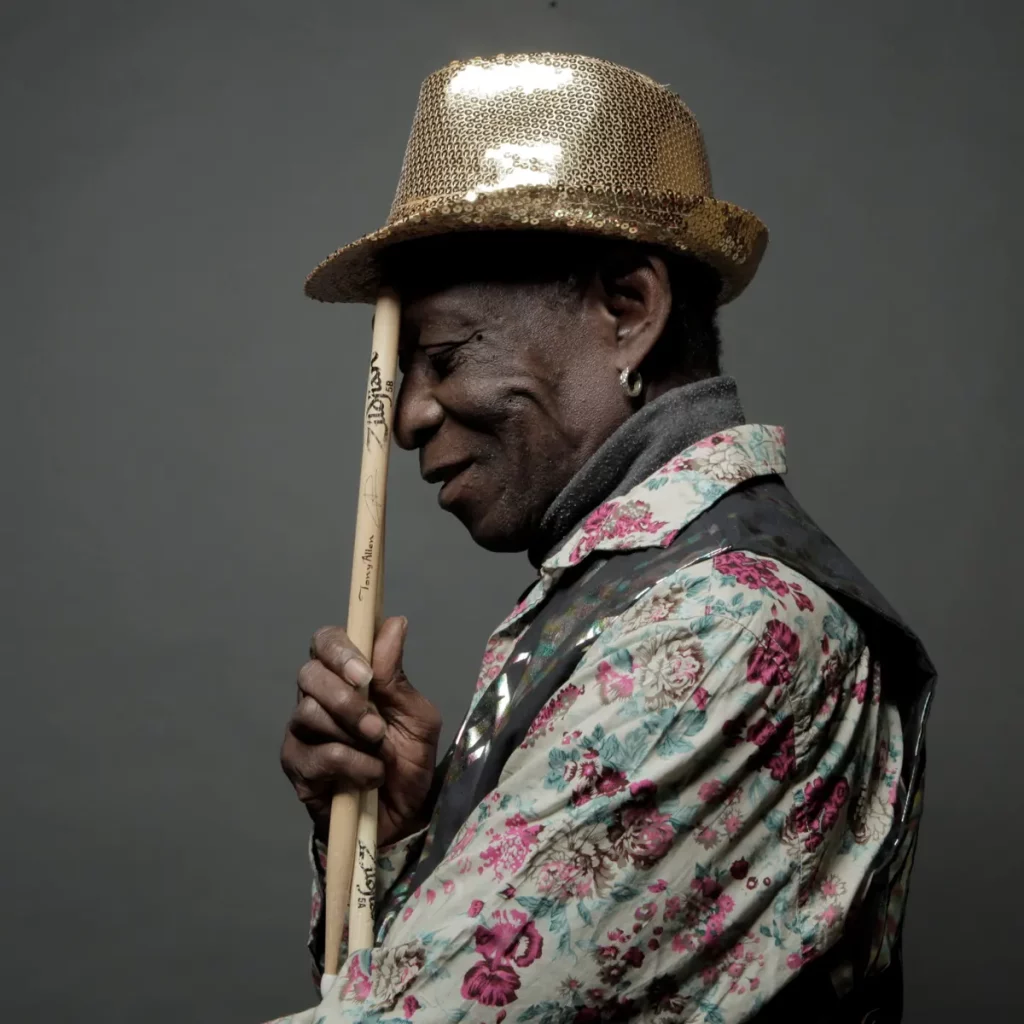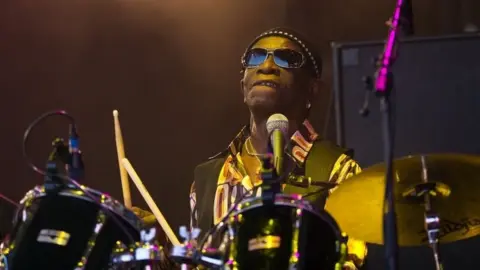News
Tony Allen, The Master Drummer of Afrobeat
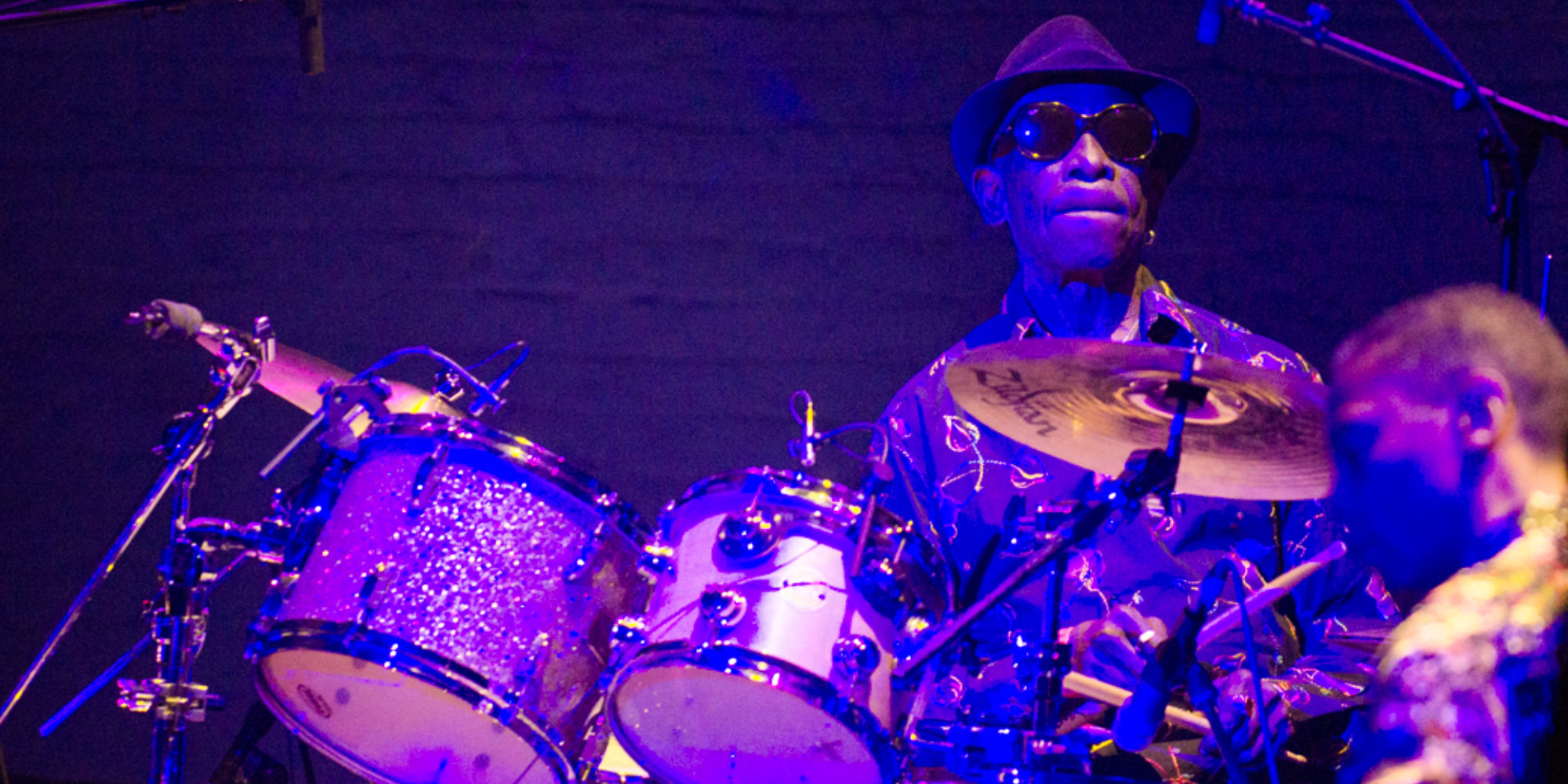
Tony Allen, the Nigerian-French drummer, stands as an icon in the world of music, celebrated for his groundbreaking contributions to Afrobeat and percussion. Born Tony Oladipo Allen in 1940, in Lagos, Nigeria, he would become a visionary musician whose rhythmic innovations continue to influence generations of artists worldwide.
Young Tony Allen
Tony Allen started playing drums at the age of 18 and his journey into music began. He developed a deep appreciation for rhythm and drumming. Growing up in Lagos, he was exposed to a rich tapestry of musical traditions, including Nigerian highlife (a music genre started in West Africa which described as a fusion of African meter and Western jazz melodies), jazz, and traditional African rhythms. These early influences would shape his musical sensibilities and lay the foundation for his future career.
The Birth of Afrobeat
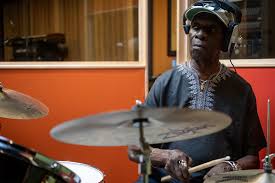
Afrobeat, characterized by its fusion of traditional African rhythms, jazz, funk, and socio-political lyrics, became the vehicle through which Tony Allen would showcase his unparalleled drumming prowess. His innovative style, marked by complex polyrhythms, improvisation, and a deep groove, became the heartbeat of Afrobeat, driving its infectious energy and propelling it to international acclaim.
Tony Allen’s contributions to Afrobeat were monumental, serving as the rhythmic architect behind some of Fela Kuti’s most iconic recordings. His drumming provided the backbone for Kuti’s impassioned vocals and incendiary lyrics, creating a powerful sonic tapestry that resonated with audiences around the world. Tracks like “Water No Get Enemy” and “Zombie” exemplify the synergy between Allen’s rhythmic wizardry and Kuti’s revolutionary message.
Collab and Beyond
Beyond his collaboration with Fela Kuti, Tony Allen embarked on a prolific solo career, releasing numerous albums that showcased his versatility and creativity as a musician. His solo work explored various musical styles, from Afrobeat to jazz and electronica, demonstrating his ability to adapt and innovate while staying true to his roots.
The Style
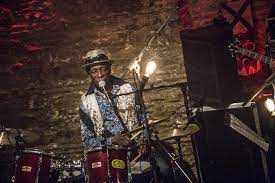
In addition to his technical prowess, Tony Allen’s drumming was imbued with a sense of urgency and purpose. He viewed rhythm as a form of communication, a language through which he could convey emotion, energy, and ideas. His drumming spoke to the resilience and spirit of the African diaspora, serving as a testament to the power of music as a tool for social change.
Influence
Tony Allen’s influence extends far beyond the realm of Afrobeat, permeating diverse genres and musical landscapes. His rhythmic innovations have inspired countless musicians across the globe, from jazz to hip-hop, funk to electronic music. Artists like Questlove, Brian Eno, and Damon Albarn have cited him as a major influence on their work, attesting to his enduring legacy and relevance in contemporary music.
Tony’s Passing
Tragically, Tony Allen’s life was cut short when he passed away on April 30, 2020, in Paris, France. His cause of death was reported as an abdominal aortic aneurysm and his untimely passing sent shockwaves throughout the music community, prompting an outpouring of tributes and commemorations from fans and fellow musicians alike.
Legacy
Despite his physical absence, Tony Allen’s legacy lives on through his music and the indelible mark he left on the world of music. He is remembered not only as a virtuoso drummer but also as a visionary artist whose creativity, passion, and innovation continue to inspire and uplift audiences around the world.
Tony Allen’s life and career stand as a testament to the transformative power of music and the boundless potential of human creativity. His contributions to Afrobeat and percussion have left an indelible mark on the world of music, inspiring generations of artists and listeners alike. Though he may be gone, his legacy endures, ensuring that his rhythmic legacy will continue to reverberate for years to come.
Let’s check out the Discography of the Afrobeat Master Drummer, Tony Allen:
Solo
- Jealousy (1975)
- Progress (1977)
- No Accommodation for Lagos (1979)
- No Discrimination (1979)
- Never Expect Power Always (with Afrobeat 2000) (1985)
- Too Many Prisoners (with Zebra Crossing) (1987)
- Afrobeat Express (1989)
- Ariya (1998)
- Ariya (remixes) (1999)
- Black Voices (1999)
- Black Voices Remixed (2000)
- Psyco On Da Bus (with Doctor L, Jean Phi Dary, Jeff Kellner & Cesar Anot) (2001)
- HomeCooking (2002)
- Live (2004)
- Lagos No Shaking (2006)
- Secret Agent (2009)
- Inspiration Information 4 (with Jimi Tenor) (2009)
- Black Voices Revisited (2010)
- Film of Life (2014)
- A Tribute to Art Blakey & the Jazz Messengers (2014)
- The Source (2017)
- OTO Live Series (with Jimi Tenor) (2018)
- Tomorrow Comes The Harvest (with Jeff Mills) (2018)
- Rejoice (with Hugh Masekela) (2020)
- How Far? (with Gorillaz and Skepta) (2020)
- There Is No End (2021)
- The Solution Is Restless (with Dave Okumu and Joan As Police Woman) (2021)
Fela Kuti
- Fela’s London Scene (1970)
- Live! (1971)
- Why Black Man Dey Suffer (1971)
- Open & Close (1971)
- Roforofo Fight (1972)
- Shakara (1972)
- Afrodisiac (1973)
- Gentleman (1973)
- Confusion (1974)
- He Miss Road (1974)
- Alagbon Close (1975)
- Everything Scatter (1975)
- Excuse O (1975)
- Expensive Shit (1975)
- Monkey Banana (1975)
- Noise For Vendor Mouth (1975)
- Ikoyi Blindness (1976)
- Kalakuta Show (1976)
- Na Poi (1976)
- Unnecessary Begging (1976)
- Upside Down (1976)
- Yellow Fever (1976)
- Fear Not For Man (1977)
- J.J.D – Live at Kalakuta Republik (1977)
- No Agreement (1977)
- Opposite People (1977)
- Sorrow Tears and Blood (1977)
- Shuffering and Shmiling (1977)
- Stalemate (1977)
- Zombie (1977)
- Unknown Soldier (1979)
- V.I.P. (1979)
- Music of Many Colours (1980)
- I Go Shout Plenty (1986, recorded in 1977)
Other appearances
- Various – Racubah! – A Collection of Modern Afro Rhythms (1999)
- Various – The Allenko Brotherhood Ensemble Part 1 (2000)
- Various – The Allenko Brotherhood Ensemble Part 2 (2000)
- Various – The Allenko Brotherhood Ensemble Part 3 (2000)
- Various – Afrobeat…No Go Die! (2000)
- Ernest Ranglin – Modern Answers To Old Problems (2000)
- Doctor L – Mountains Will Never Surrender (2000)
- Various – The Allenko Brotherhood Ensemble (2001)
- Various – The Allenko Brotherhood Ensemble Part 4 (2001)
- Various – The Allenko Brotherhood Ensemble Part 5 (2001)
- Various – The Allenko Brotherhood Ensemble Part 6 (2001)
- Bababatteur – Awa Band (2004)
- New Cool Collective – Trippin (2006)
- The Good, the Bad & the Queen – The Good, the Bad & the Queen (2007)
- Charlotte Gainsbourg – 5:55 (2007)
- Rocket Juice & the Moon – Rocket Juice & the Moon (2012)
- Various – The Rough Guide to African Disco (2013)
- Chicago Afrobeat Project – What Goes Up (2017)
- Gonjasufi – Mandela Effect (2017)
- The Good, the Bad & the Queen – Merrie Land (2018)
- Keleketla – Keleketla! (2020)
- Adrian Younge – Tony Allen JID018 (2023)
Here’s Tony Allen with Moanin’ during the Tribute to Art Blakey
Here’s a quick lesson from the main man himself, Tony Allen

